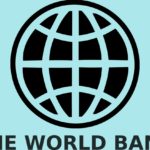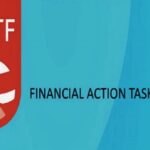ISLAMABAD: Prime Minister Imran Khan has appreciated the World Bank’s financial and technical support to Pakistan.
He said this while welcoming World Bank Group President David R. Malpass here on Thursday.
The prime minister reiterated the government’s resolve towards strengthening of economy, ensuring transparency and good governance, institutional reforms, tax reforms and socio-economic development of the marginalized sections of society.
He said that ease-of-doing business, enhancing tax base, domestic resource mobilization, attracting foreign investment and financial reforms agenda s the foremost priority of the government.
Prime Minister Khan apprised that the government has launched various initiatives aimed at welfare of the youth, poverty alleviation and housing sectors that will ultimately result in economic development.
President World Bank was accompanied by Regional VP South Asia Hartwig Schafer, Ms. Ceyla Pazarbasioglu-Dutz, Regional Vice President IFC Ms. Snezana Stolijkovic and Country Director World Bank Pakistan Patchamuthu Illangovan.
The Pakistani side comprised of Minister for Economic Affairs Muhammad Hammad Azhar, Minister Planning Makhdoom Khusro Bakhtiar, Minister Water Resources Faisal Vawda, Advisor on Finance Dr. Abdul Hafeez Sheikh, Advisor on Institutional Reforms Dr. Ishrat Hussain, SAPM Dr. Firdous Ashiq Awan, SAPM Dr. Sania Nishtar, Governor State Bank Raza Baqir, Chairman FBR Syed Shabbar Zaidi and senior officers.
President World Bank Group, David Malpass appreciated Prime Minister Imran Khan for personally spearheading various flagship programs of the government. He also recognized the efforts of the government towards economic turn-around, reducing expenditures, practicing austerity and initiating reforms in critical sectors of the economy.
He said that there was substantial progress in economic indicators despite Global and internal fiscal challenges.
Later, a round-table conference was also held wherein detailed discussions were held on issues related to energy sector and reforming tax regime of the country. Minister for Economic Affairs Hammad Azhar, in his opening remarks, highlighted overall reform agenda of the government and the efforts being made for economic turn-around.
Advisor Finance Dr. Abdul Hafeez Sheikh gave an overview of the achievements made by the Government during last one year. He also underlined the efforts made by the government to stabilize the economy and to put it onto the path of growth.
He said that there was a considerable progress this year on exports, containing fiscal and current account deficits, revenue collection, restricting expenditures and exchange rate stabilization.
Minister for Power Omar Ayub Khan and SAPM on Energy Nadeem Babar shared the strategy of the Government to overcome the issues related to energy sector including circular debt and efforts being made to diversify energy-mix with greater reliance on alternate and renewable energy resources.
The World Bank President David R. Malpass also visited Tarbela Dam Project on Thursday and had a round of the Main Dam and the Power House of Tarbela 4th Extension Hydropower Project.
Water Resources Federal Minister Muhammad Faisal Vawda, Water Resources Federal Secretary Muhammad Ashraf, WAPDA Chairman Lt Gen Muzammil Hussain (Retd) and World Bank senior officials accompanied him during the visit.
Speaking on the occasion, World Bank President David R. Malpass expressed his pleasure over completion of Tarbela 4th Extension Hydropower Project within time and less than estimated cost, adding that the work on the project is impressive.
The efforts of Government of Pakistan particularly Ministry of Water Resources and the Minister Faisal Vawda for improvement of water resources in Pakistan are applauded.
President World Bank appreciated the efforts of Ministry of Water Resources especially the Minister for resolving the issues in relation to completion of Dassu Hydral Power Project, construction of Dams and other related projects.
The team of World Bank especially recognized the untiring efforts of Faisal Wadda, Minister for water Resources for effectively coping with the challenges related to water issues in Pakistan.
Earlier, Water Resources Federal Minister Muhammad Faisal Vawda thanked the World Bank for the cooperation it has been providing to Pakistan for harnessing water and hydropower resources since 1960.He expressed the hope that this cooperation will further enhance for implementation of various projects in the days to come.
Vawda said we are taking comprehensive and effective measures for improvement of water resources and construction of dams in Pakistan.
Pakistan will witness more progress in hydropower and water sectors with cooperation of Water Bank in future. Faisal Vawda, Federal Minister for Water Resources further added.
He said 523 billion units of electricity have been contributed by Tarbela Hydel Power Station to the National Grid. Welcoming the World Bank President at Tarbela, WAPDA Chairman Lt Gen Muzammil Hussain (Retd) commended that the World Bank not only helped broker Indus Water Treaty between Pakistan and India but also administered the entire financial arrangements with assistance of the friendly countries to complete Indus Basin Replacement Works, which included two mega dams namely Mangla and Tarbela, five barrages and nine inter-river link canals to divert water from the Western Rivers to the Eastern Rivers.
He also appreciated the World Bank for financial support for Tarbela 4th Extension Hydropower Project, Dasu Hydropower Project and upcoming Tarbela 5th Extension Hydropower Project. WAPDA is looking forward to World Bank’s support for other projects, located on Indus Cascade.
The projects on Indus Cascade have the great potential to store water and generate phenomenal hydel electricity, he further said. Briefing the World Bank President about the benefits of Tarbela Dam Project, the Chairman said that as many as 378 MAF water has been released from Tarbela Reservoir to meet irrigation needs of the country.
In addition, Tarbela 4th Extension Hydropower Project, commissioned last year, has also generated 5.6 billion units – more than the generation envisaged in PC-I of the project.





